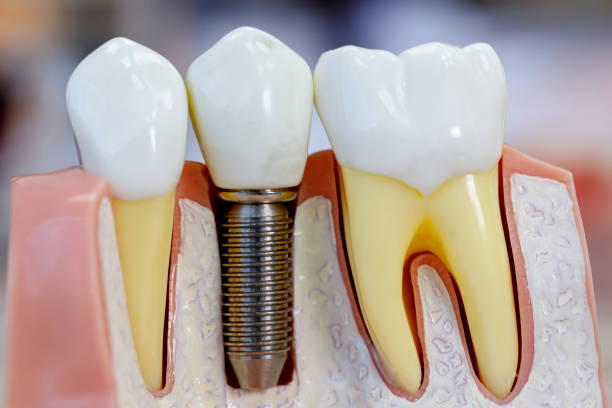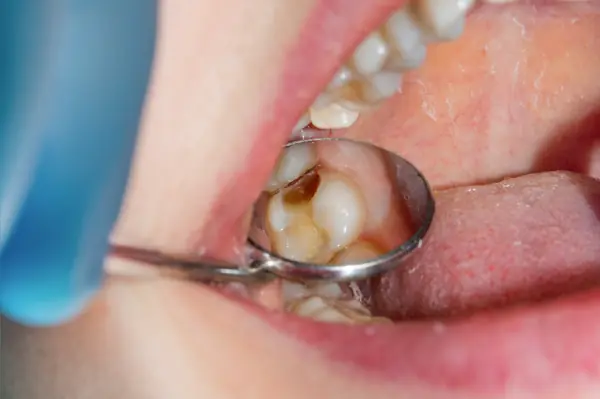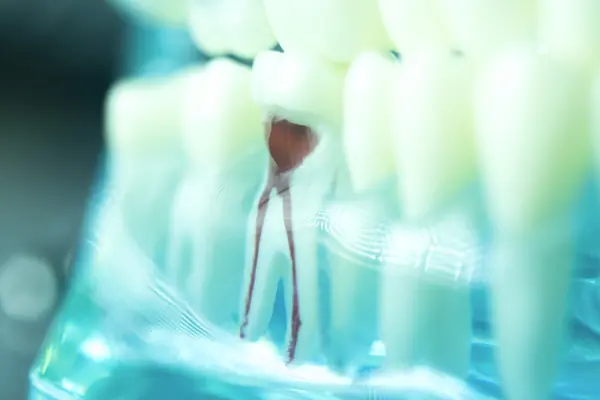Why Some Dental Implants Age Better Than the People Who Get Them

They don’t wrinkle. They don’t sag. They don’t complain about arthritis or forget where they left their glasses. In fact, if dental implants had a social media profile, their tagline might read: “Low maintenance, high performance, ages like fine titanium.”
Jokes aside, there’s something fascinating about how these man-made marvels can outlast—and outperform—the very bodies they’re placed into. So what gives? Why do dental implants age better than the people who get them?
How Do Dental Implants Maintain Their Function Over Several Decades?
Dental implants are often hailed as the most durable tooth replacement option available—and for good reason. Once placed correctly, they become a near-permanent part of your anatomy. But how exactly do they maintain their integrity and function over 20, 30, even 40 years?
The answer lies in a few high-tech, biology-friendly characteristics:
- Material Strength: Dental implants are typically made from titanium or zirconia, both biocompatible and incredibly strong. These materials resist corrosion, wear, and pressure—even decades of chewing.
- Osseointegration: Perhaps the most magical part of an implant is its ability to bond with bone. Through a process called osseointegration, the implant fuses with your jaw, creating a stable and natural-feeling foundation.
- No Tooth Decay: Unlike natural teeth, implants aren’t subject to cavities or root canals. That alone adds years to their lifespan.
- Precision Placement: When installed properly, implants distribute bite forces evenly, minimizing wear and preventing surrounding teeth from taking on excess strain.
So while our knees may creak and our backs may ache, dental implants are still happily handling steak dinners, crunchy apples, and even the occasional popcorn kernel with minimal complaints.
What Factors Influence the Longevity of Dental Implants Compared to Natural Teeth?
There’s a popular saying in dentistry: “Take care of your implants like you would your teeth—but with the understanding that they’ll likely do a better job holding up.” While this is a slight exaggeration, it underscores how resilient implants really are. Still, like any part of your body (or a finely tuned machine), they’re influenced by several factors:
1. Oral Hygiene
- Yes, implants can’t get cavities—but your gums still can become inflamed or infected.
- Peri-implantitis, similar to gum disease, can affect the tissues around an implant, threatening its stability.
2. Bone Health
- Implants rely on strong, healthy jawbone to stay anchored.
- Bone loss due to age, osteoporosis, or gum disease can jeopardize their integrity over time.
3. Bite Alignment
- A poorly balanced bite can cause excess stress on certain implants.
- This may lead to chipping or loosening of the crown over time.
4. Lifestyle Habits
- Smoking, excessive alcohol, and poor diet can reduce blood flow and compromise healing around the implant.
- Clenching or grinding teeth (bruxism) without a nightguard can also wear down the prosthetic.
Compared to natural teeth—which are vulnerable to decay, infection, and enamel erosion—implants have fewer biological vulnerabilities. But they’re not indestructible. The good news? With proper care, their expected lifespan is measured in decades.
Why are Dental Implants Considered More Durable Than Other Dental Solutions?
When comparing dental implants to other tooth replacement options—like bridges or dentures—it’s clear why they’re considered the “premium” choice. While other restorations have their place, they simply can’t match the durability, stability, or natural feel of an implant.
Here’s what sets implants apart:
Bridges:
- Rely on adjacent teeth for support, which can weaken those teeth over time.
- Tend to last 10–15 years before needing replacement or repair.
- Do not stimulate bone growth beneath the missing tooth.
Dentures:
- Must be removed and cleaned daily.
- Can become loose due to bone resorption over time.
- Often need relining or adjustments every few years.
Implants:
- Stand alone—no need to anchor to other teeth.
- Stimulate the jawbone, preventing bone loss.
- Can last 25+ years, with many lasting a lifetime.
So while a well-cared-for set of dentures can certainly serve its purpose, implants offer a one-time investment that tends to go the distance—outpacing nearly every other option in both performance and lifespan.
How Does the Body Adapt to Dental Implants Over Time?
What makes dental implants truly impressive isn’t just their strength—it’s how seamlessly they become a part of the body. Unlike other prosthetics (think artificial joints or pacemakers), implants aren’t just tolerated—they’re welcomed.
1. Osseointegration
This fancy word describes the fusion of the implant with your jawbone. Over a few months post-surgery, the bone grows around the implant, treating it like a natural part of your skeletal system. Once integrated, the implant acts like a natural root—strong and steady.
2. Bone Preservation
One of the lesser-known benefits of implants is their ability to stimulate bone growth. When a tooth is lost, the jawbone beneath it begins to shrink. Implants counteract this by providing the stimulation the bone needs to stay healthy.
3. Neuromuscular Adjustment
The muscles in your jaw, face, and tongue adapt to the new bite and chewing pattern. Within a few weeks, most patients report their implants feel completely natural.
4. Improved Confidence and Function
Let’s not forget the psychological benefits. As patients adjust to the appearance and function of their implants, they often regain confidence in eating, speaking, and smiling—leading to better overall quality of life.
In other words, your body doesn’t just get used to implants—it works with them.
Rediscover Long-Term Confidence in Your Smile
If you’re considering tooth replacement, dental implants might just be the lifetime companion you’re looking for. At Crescent Family and Cosmetic Dentistry of Columbia, we combine precision technology with personalized care to deliver implant solutions that look great, feel natural, and last for decades.
Book your consultation today and discover how your next smile could be the most durable one yet.




